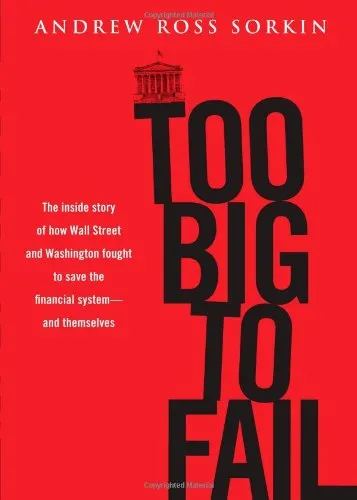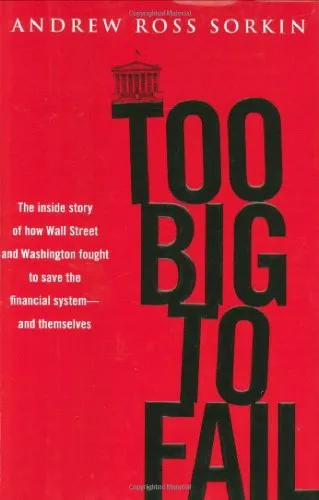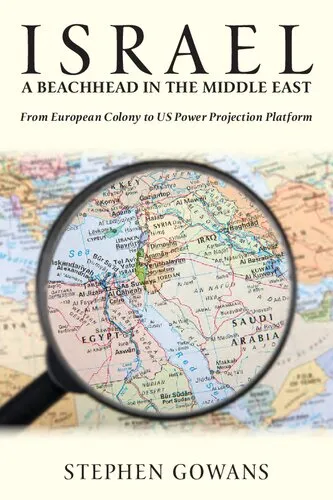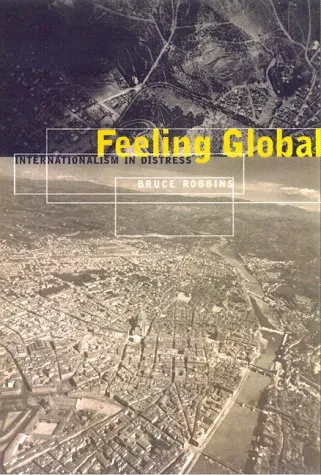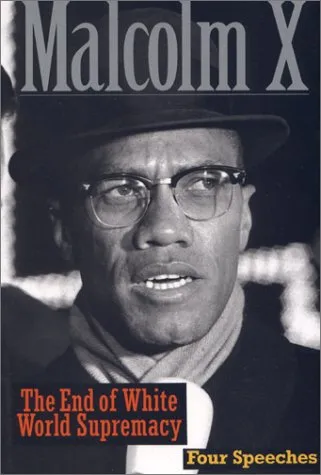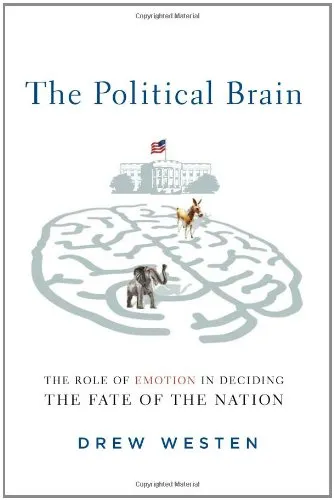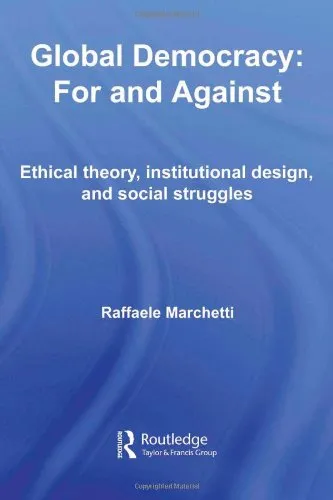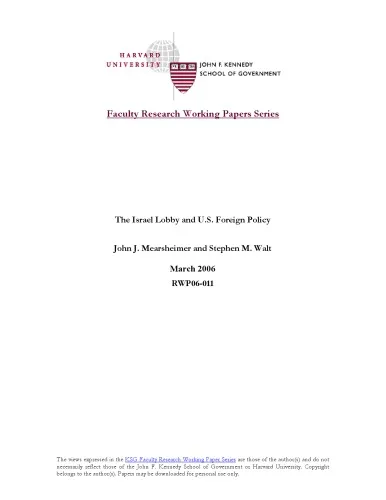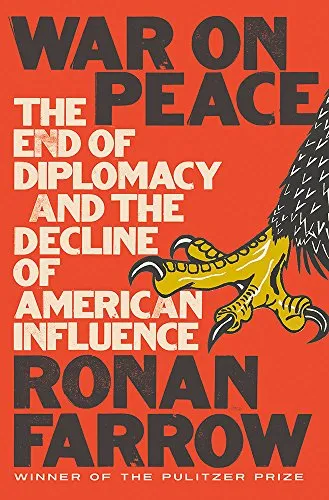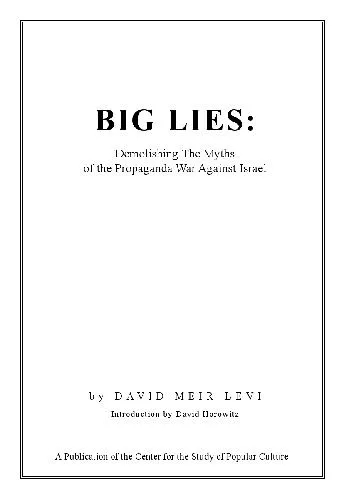Brokers of deceit: how the US has undermined peace in the Middle East
4.5
بر اساس نظر کاربران

شما میتونید سوالاتتون در باره کتاب رو از هوش مصنوعیش بعد از ورود بپرسید
هر دانلود یا پرسش از هوش مصنوعی 2 امتیاز لازم دارد، برای بدست آوردن امتیاز رایگان، به صفحه ی راهنمای امتیازات سر بزنید و یک سری کار ارزشمند انجام بدینکتاب های مرتبط:
معرفی کتاب 'Brokers of Deceit: How the US Has Undermined Peace in the Middle East'
کتاب 'Brokers of Deceit: How the US Has Undermined Peace in the Middle East' نوشته رشید خالدی، اثری تحلیلی و دقیق در زمینه سیاست خارجی آمریکا در خاورمیانه و تلاشهای ناکام برای برقراری صلح در این منطقه پیچیده و حساس است. این کتاب با بررسی سه مکانیسم کلیدی، نشان میدهد چگونه ایالات متحده نقش «میانجی» خود را در فرایند صلح اسرائیل-فلسطین به شکلی هدفمند و عمدی به کار گرفته تا از منافع اسرائیل حمایت کند، و این کار در نهایت مانع تحقق صلح شده است. خالدی از توانمندی بالای تاریخی و دانش سیاسی خود بهره میگیرد تا به بررسی ریشهها و پیامدهای سیاستهای آمریکا در این زمینه بپردازد.
این اثر با استناد به اسناد رسمی، اظهارات عمومی، و مذاکرات پشت پرده، از سیاستهای دوگانه و متناقض آمریکا پرده برمیدارد. خالدی نشان میدهد که چگونه ایالات متحده با تقویت وضعیت اشغالگری اسرائیل، نقش خود را به عنوان یک «صادق بیطرف» زیر سؤال برده است. با خواندن این کتاب، خواننده نه تنها با تاریخچه روابط آمریکا و خاورمیانه آشنا میشود، بلکه میتواند سیاستهای امروزین نسبت به فلسطین را نیز بهتر تحلیل و ارزیابی کند.
خلاصهای از محتوای کتاب
کتاب در سه بخش اصلی یا به اصطلاح سه «اپیزود» مهم تنظیم شده است که هر کدام یکی از موارد اصلی خیانت آمریکا به مفهوم واقعی میانجیگری صلح را بررسی میکند. خالدی نشان میدهد که چگونه سیاستمداران آمریکایی، از جمله روسای جمهور و مشاوران ارشد، عمداً از قدرتهای سیاسی و اقتصادی خود برای تضعیف فلسطینیان و پیشنهادههای صلح عادلانه استفاده کردهاند.
خالدی این پروسه را از طریق شواهد تاریخی بررسی میکند، به خصوص سیاستهایی که به تسهیل شهرکسازی اسرائیل و نادیده گرفتن حقوق فلسطینیان منجر شدند. هر فصل با تحلیلهای دقیق، آرشیوهای حساس، و بررسی روندهای دیپلماتیک عمومی و پشت پرده غنی شده است. این فصلها خواننده را به سفری فکری میبرند که حقایق تلخ سیاست آمریکا در منطقه را آشکار میکند.
نکات کلیدی کتاب
- نقش ایالات متحده در حمایت از توسعه شهرکسازیهای اسرائیل
- نقد مدل میانجیگری جعلی آمریکا و پیامدهای آن
- استفاده از دیپلماسی برای تقویت روایت یکجانبه اسرائیل
- تاریخچه تقابل قدرتهای بینالمللی در مسئله فلسطین
- اهمیت عدالت و حقوق برابر فلسطینیها در فرآیند صلح
جملات مشهور از کتاب
- «سیاست آمریکا در قبال اسرائیل هرگز مسئله صلح یا عدالت را اولویت اصلی قرار نداده است.»
- «به نظر میرسد میانجیگری آمریکا بیش از آنکه برای ایجاد صلح باشد، ابزاری برای حفظ برتری اسرائیل است.»
- «هر جا که حقیقت قابل انکار نباشد، دیپلماسی خاموش جایی برای پنهان کردن آن پیدا میکند.»
چرا این کتاب مهم است؟
'Brokers of Deceit' یکی از مهمترین آثار معاصر است زیرا پرده از روی سیاستهای یکجانبهگرایانه و گاه منافقانه ایالات متحده در راستای منافع استراتژیک اسرائیل برمیدارد. این کتاب برای هر کسی که به عدالت، تاریخ، و سیاستهای بینالمللی علاقهمند است، ضروری است. رشید خالدی نه تنها به مخاطبان عمومی بلکه به سیاستگذاران، دانشگاهیان، و فعالان حقوق بشر نیز این فرصت را میدهد که از دیدگاههای تحریف نشده از تاریخ مسئله فلسطین بهرهمند شوند.
Introduction to "Brokers of Deceit: How the US Has Undermined Peace in the Middle East"
Written by Rashid Khalidi, a distinguished historian and Middle East scholar, "Brokers of Deceit: How the US Has Undermined Peace in the Middle East" offers an incisive analysis of how the United States has played an active and deeply problematic role in obstructing peace efforts between Israel and Palestine. Drawing on decades of expertise and research, Khalidi exposes the systematic bias underpinning U.S. foreign policy decisions and reveals how successive American administrations have prioritized Israel’s interests, often at the expense of justice for Palestinians and long-term stability in the region.
This book challenges the conventional portrayal of the United States as an "honest broker" in the conflict. Instead, Khalidi convincingly argues that the U.S. has consistently facilitated Israeli expansionism while undermining Palestinians' legitimate national aspirations. Through a detailed examination of critical moments in the peace process, Khalidi deconstructs the policies, language, and political maneuvers that have perpetuated this imbalance, rendering a lasting peace almost impossible. In an era where the Palestinian-Israeli conflict continues to dominate political discourse, the book serves as an essential resource for understanding the complexities of U.S. policy and the role it continues to play in shaping the region.
Detailed Summary of the Book
At the heart of "Brokers of Deceit" are three carefully chosen case studies that illuminate critical junctures in U.S.-mediated peace negotiations. Khalidi delves into the internal dynamics of these moments to demonstrate how, far from facilitating a just solution, U.S. policy has entrenched Israel’s dominance over the occupied territories and marginalized Palestinian voices.
The first case study focuses on the Madrid Peace Conference of 1991, organized under President George H. W. Bush's administration. Khalidi reveals how the seemingly promising negotiations were hollowed out by American capitulation to Israeli demands. The second case examines the infamous "Road Map for Peace" during George W. Bush's presidency, showing how it was designed to allow Israel to dictate terms while neutralizing genuine Palestinian resistance. Finally, the book critiques the Obama administration—initially seen as a beacon of hope for impartial mediation—laying bare its failure to challenge Israeli settlement expansion decisively.
Across these examples, Khalidi highlights how central figures in U.S. policymaking, from Henry Kissinger to more contemporary leaders, have framed the conflict in terms that inherently disadvantage Palestinians. Whether through the use of manipulative language, the exercise of leverage, or turning a blind eye to violations of international law, Khalidi underscores a consistent U.S. agenda: prioritizing Israeli political objectives and strategic partnerships.
Key Takeaways
- The United States is not an impartial mediator in the Israeli-Palestinian conflict but an active participant supporting Israel’s geopolitical aims.
- U.S. diplomatic language is carefully crafted to obscure the realities of occupation and inequality, sustaining the status quo.
- American administrations across party lines have largely adhered to the same biases, maintaining their commitment to Israel regardless of changing circumstances.
- Palestinian voices have been systematically excluded from negotiations, underscoring the imbalance of power at the negotiation table.
- To achieve true peace, Khalidi emphasizes the need for an honest reckoning with these entrenched biases and the adoption of policies rooted in justice.
Famous Quotes from the Book
"The United States has never been an 'honest broker.' It has always been about wielding power to achieve its own objectives, no matter the cost to Palestinians."
"The language of diplomacy is not accidental. Words are chosen to obscure, to mislead, and to protect those in power."
"In the end, it is only through acknowledging the truth of the conflict—and the role of the U.S. in perpetuating it—that we can begin to imagine a just resolution."
Why This Book Matters
The significance of "Brokers of Deceit" transcends the confines of academic scholarship. By deconstructing the political dynamics of U.S. involvement in the Israeli-Palestinian conflict, Khalidi empowers readers to critically assess long-held narratives presented in mainstream media and official discourse. The book sheds light on the structural inequalities embedded in the so-called peace process, challenging readers to reconsider the nature of international diplomacy and the assumptions that underwrite U.S. foreign policy.
As the world continues to grapple with the repercussions of the unresolved Israeli-Palestinian conflict, the insights presented in this book remain profoundly relevant. For policymakers, journalists, activists, and everyday citizens, "Brokers of Deceit" provides a vital framework for understanding the complexities of the conflict and the mechanisms by which power is wielded to silence marginalized voices. In essence, Khalidi stresses the urgent need for accountability, fairness, and justice in any meaningful attempt at peace.
دانلود رایگان مستقیم
شما میتونید سوالاتتون در باره کتاب رو از هوش مصنوعیش بعد از ورود بپرسید
دسترسی به کتابها از طریق پلتفرمهای قانونی و کتابخانههای عمومی نه تنها از حقوق نویسندگان و ناشران حمایت میکند، بلکه به پایداری فرهنگ کتابخوانی نیز کمک میرساند. پیش از دانلود، لحظهای به بررسی این گزینهها فکر کنید.
این کتاب رو در پلتفرم های دیگه ببینید
WorldCat به شما کمک میکنه تا کتاب ها رو در کتابخانه های سراسر دنیا پیدا کنید
امتیازها، نظرات تخصصی و صحبت ها درباره کتاب را در Goodreads ببینید
کتابهای کمیاب یا دست دوم را در AbeBooks پیدا کنید و بخرید


